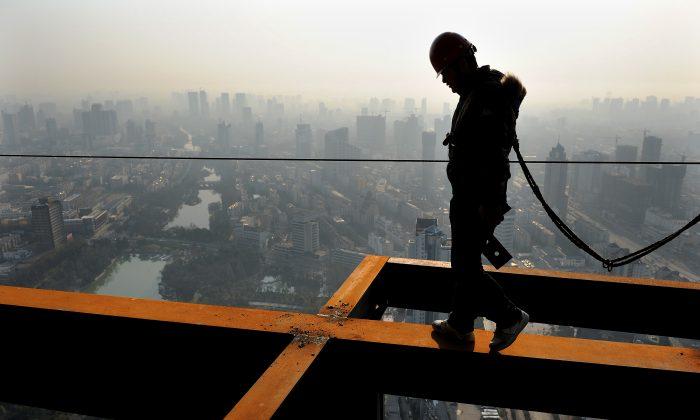Home prices in major Chinese cities show no sign of decline despite strict control over the property market in the past few years. Prices of both new and existing homes continued to rise in most Chinese cities in July. Experts said the upward trend will remain in first-tier cities.
Data released by China Index Academy showed that the average price of new houses in 100 cities rose 0.87 percent in July compared to June, maintaining a rise for the 14th straight month.
Compared with a year ago, new home prices in 70 cities increased 7.5 percent in July, the seventh consecutive month of rises, according to another set of data released by the National Bureau of Statistics (NBS). This is also the biggest jump since January 2011, according to Reuters.
Chinese policymakers have rolled out a series of measures to rein in the property market since 2010, including third-home purchase bans, property tax trials, and widespread low-income housing construction.
Beijing has been subjected to the strictest property control measures. However, in year-on-year terms, new home prices in Beijing recorded the biggest jump, up 18.3 percent, followed by Guangzhou’s 17.4 percent and Shenzhen’s 17 percent, the NBS data showed.
The Party’s top leaders stopped mentioning property control measures in Politburo meetings in late July. Instead, it was announced that they will seek “stable and healthy development” of the real estate market.
The change of tone has drawn speculation that there won’t be new control measures in the near future, triggering a growing sense of optimism in the market.
Prices in first-tier cities, including Beijing and Shanghai, will continue to surge, Li Tie, director of China Centre for Urban Development under the National Development and Reform Commission, said in an economic forum on July 31.
China suspended refinancing plans of listed property developers in 2009 amid an overheated housing market. However, since July a slew of real estate firms have announced refinancing plans. In the first week of August, three developers announced their refinancing plans, with a combined fundraising target exceeding 8.8 billion yuan ($1.4 billion).
In a real estate forum in mid-August, Zhu Zhongyi, vice president of the China Real Estate Industry Association said China is expected to release a “long-term mechanism” for stable and healthy development of the property market in the next three months.
He added that although the rudiments of the mechanism will probably be released soon, however, “it will take years to put forward the system.”
This means home prices will continue to go up for at least another four years, because the authorities still cannot bring the prices down after exhausting all measures, real estate analyst Zhang Lei told 21 Century Business Herald.
Rise in home prices is fueled by rapid hikes in land prices, which hit a new peak recently. Ren Zhiqiang, an outspoken real estate tycoon commented that the Party’s new leaders probably hope to see home prices surge in order to feed the money pits created by local government debts, given that 53 percent of local government debts will mature by the end of 2013.
“If land prices don’t go up, local governments won’t be able to repay their debts,” he said in an economic forum on Aug. 9.
Since policy makers have not done a good job putting forward clear policies for the property market, Ren said the upward trend will remain, either short term or long term.
But all this is likely to bring dire social consequences, according to Professor of Economics at Beijing Institute of Technology Hu Xingdou.
Vast numbers of people will find housing unaffordable, while the middle-class will become “housing slaves,” per the Chines expression, using most of their salaries to repay bank loans due to soaring housing prices, Hu said in an interview with Radio Free Asia.
“Consequently, China’s real economy will slide even further, because people all want to put their money in the property sector,” he continued. “In the long run, this will also have serious economic consequences.”



Friends Read Free